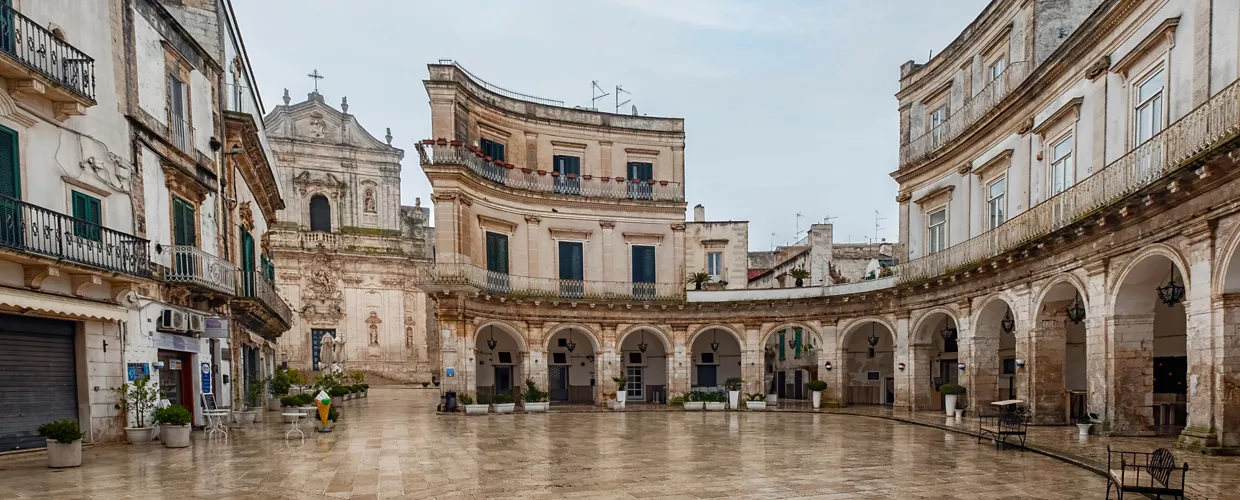This content was automatically translated. View the original text.


In the heart of the Itria Valley, Martina Franca is the lively town famous for its concentration of baroque, of which the historic centre is dotted. In a beautiful panoramic position overlooking the valley is a tangle of stone alleys with sudden widens, baroque churches and palaces with flowered wrought iron balconies. In summer, it is home to the prestigious Itria Valley festival of opera music.
The antechamber of the centre is the large stone widening of Piazza XX Settembre, the typical gathering of the elderly who sit in the shade and chat. Coming from the magnificent Ducal Palace, you can reach it by passing under the baroque Porta di Santo Stefano, also called Porta di Sant\'Antonio and which recalls the miraculous intervention of San Martino, who according to legend helped defend the city from the mercenaries of the French crown. Hence the U\'ring, in slang, in Italian the Ringo (Corso Vittorio Emanuele, the official name), is the best way to get into the centre, as it is the road along which the main attractions are concentrated. Among the noble baroque palaces, the basilica of San Martino emerges a little surprisingly with its façade embellished with twisted rococo curlicues. But the place where you receive the greatest embrace of Martinique baroque is the semi-circular square of Mary Immaculate, from which the basilica on the open side emerges. The market stalls once stood under the neoclassical portico. By day, you can enjoy the shine of the white stone while at night the lights that illuminate it make it a memorable sight.
74015 Martina Franca TA, Italia